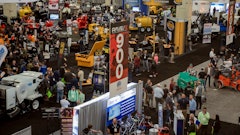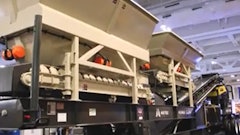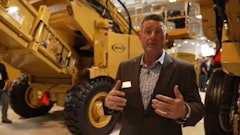
On September 9th, President Joe Biden used the full force of his presidency to push two-thirds of American workers to be vaccinated against the coronavirus, impacting the lives of up to 100 million Americans in total. The new emergency rules were announced lsat week as part of a new six-part effort from Biden to increase the vaccination rate in the U.S. as he seeks to tamp down criticism over the administration's handling of a surge in coronavirus cases related to the Delta variant. Only about 53 percent of the population is currently fully vaccinated, according to the Centers for Disease Control and Prevention.
According to The White House, employers who break the rules could face fines of $14,000 per violation.
The order reaches into the private sector to mandate that all companies with more than 100 workers require vaccination or weekly testing. Biden's Executive Order also requires that all federal contractors through Federal and state directives now or will require contractors working on certain projects to ensure their workers are vaccinated against COVID-19.
This however applies only to firms doing direct work with federal agencies. According to the American Road and Transportation Builders Association (ARTBA), it does not appear applicable to firms working on federal-aid transportation construction contracts administered by state or local agencies, which comprise the vast majority of work done by ARTBA members.
Federal and state vaccination mandates all have differing implementation dates and the order is already facing headwinds from businesses, conservative governors and even his union allies. Attorneys say they are fielding frenzied calls from companies with questions over what the rules requiring them to verify that their workers are vaccinated or tested weekly for Covid-19 will actually entail and whether the business or unvaccinated employees will have to pay for the testing.
OSHA's Emergency Temporary Standard
As a result of the Executive Order, the U.S. Occupational Safety and Health Administration (OSHA) will issue an emergency temporary standard (ETS) requiring businesses with 100 or more employees to ensure all personnel are either vaccinated or tested at least once a week for COVID-19. Employers will be required to provide paid leave for employees to get the vaccine and to recover from their vaccination, if necessary.
This means OSHA will use its power to make “temporary emergency standards” rather than its ordinary rule-making authority Ordinary rule-making process requires notice, opportunity for public comment, and likely would take years.
Both executive orders are effective immediately. Further guidance for direct federal contractors will be issued by Sept. 24, administration officials said. There is not yet a date for the OSHA ETS, although presumably it will be a priority item for that agency. The ETS will be effective upon publication in the Federal Register.
What This Means for Your Company
During an Association of Equipment Distributors (AED) webinar, lawyers from the Laffey, Leitner & Goode LLC lawfirm discussed the vaccine mandate and implications for construction contractors.
"The choice if employers should require vaccination is a decision they should make based on their particular legal obligations (federal, state and local) and business needs," Joseph S. Goode, managing partner at LLG said. The below from the webinar lays out past vaccine mandate information and what employers can expect to see from the Biden mandate.
For past vaccine mandates, the U.S. Equal Employment Opportunity Commission (EEOC) has opined that employers may mandate the vaccine with two exceptions:
- Accommodations for a “sincerely held religious belief” under the Title VII of the Civil Rights Act of 1964
- Medical accommodations under the Americans with Disabilities Act (ADA)
- Your state may have specific rules
What that looks like:
- A written statement that the employee’s religious beliefs prohibit them from being vaccinated
- A doctor’s note linking the employee’s health history to the doctor’s conclusions that a vaccination would undermine that employee’s health
Under EEOC Guidelines:
- Employers can exclude those who refuse to be vaccinated from the workplace
- Anti-discrimination laws do not prevent employers from adhering to public health directives from the CDC or local health authorities
- If employee has valid need for medical accommodation, employer may still exclude the employee from the workplace if no reasonable accommodation can be made
- Work on a reasonable “remote work” approach if possible
- If none is possible, termination may be the only option
- EEOC guidance focuses on “direct threat” to others in the workplace
With Biden's Mandate, there are two main requirements:
- Employees must be “exposed to grave danger” from exposure to “physically harmful substances”
- The emergency safety rule must be “necessary” to protect employees from the danger
Prior cases defining OSHA’s emergency rule-making authority suggest that the most likely problems are:
- Showing that vaccination or frequent testing is “necessary” when there may be significant differences in transmission risks (such as when employees work remotely or when they have minimal direct contact in the workplace)
- Demonstrating that all employers of more than 100 people risk “grave danger”
- Testing option means legal challenges should not focus on “forced vaccination”
There is definitely uncertainty associated with these recent directives, and we are going to keep an eye on this as it develops. Time, regulations and litigation will tell how this will all play out. Be sure to check with (or wait for) your contracting agency to issue more specific guidance for your Federal and State projects.





























